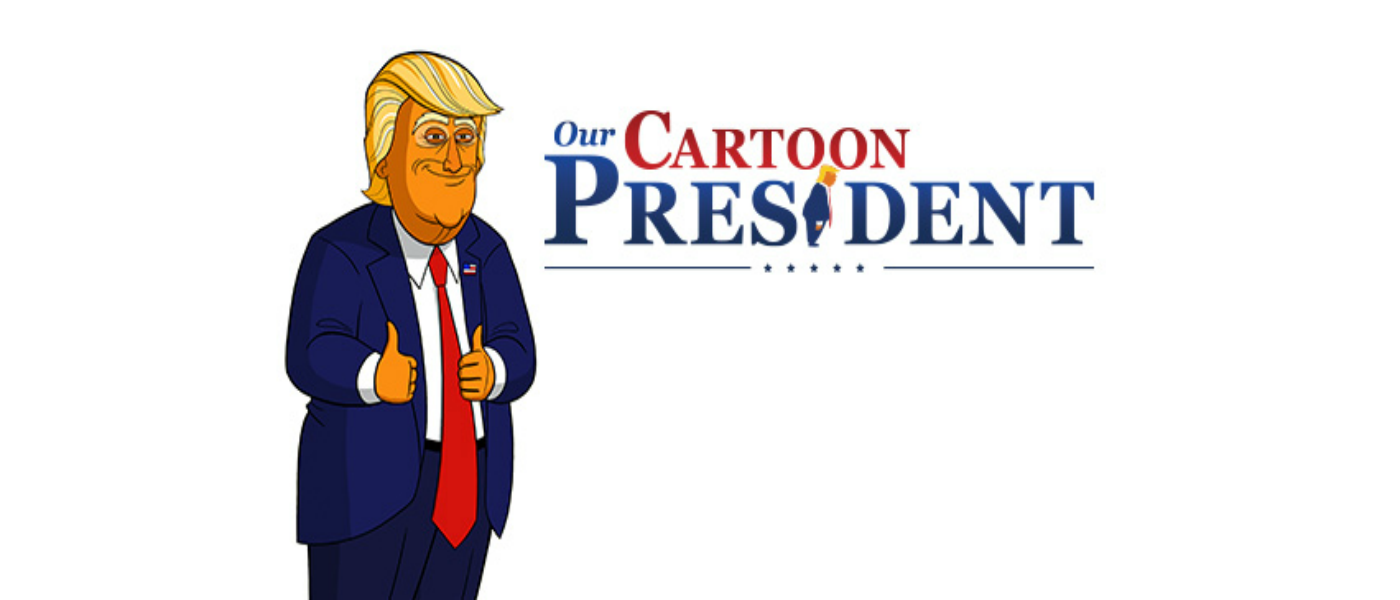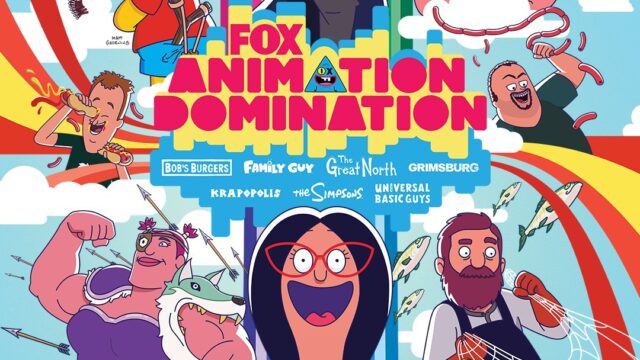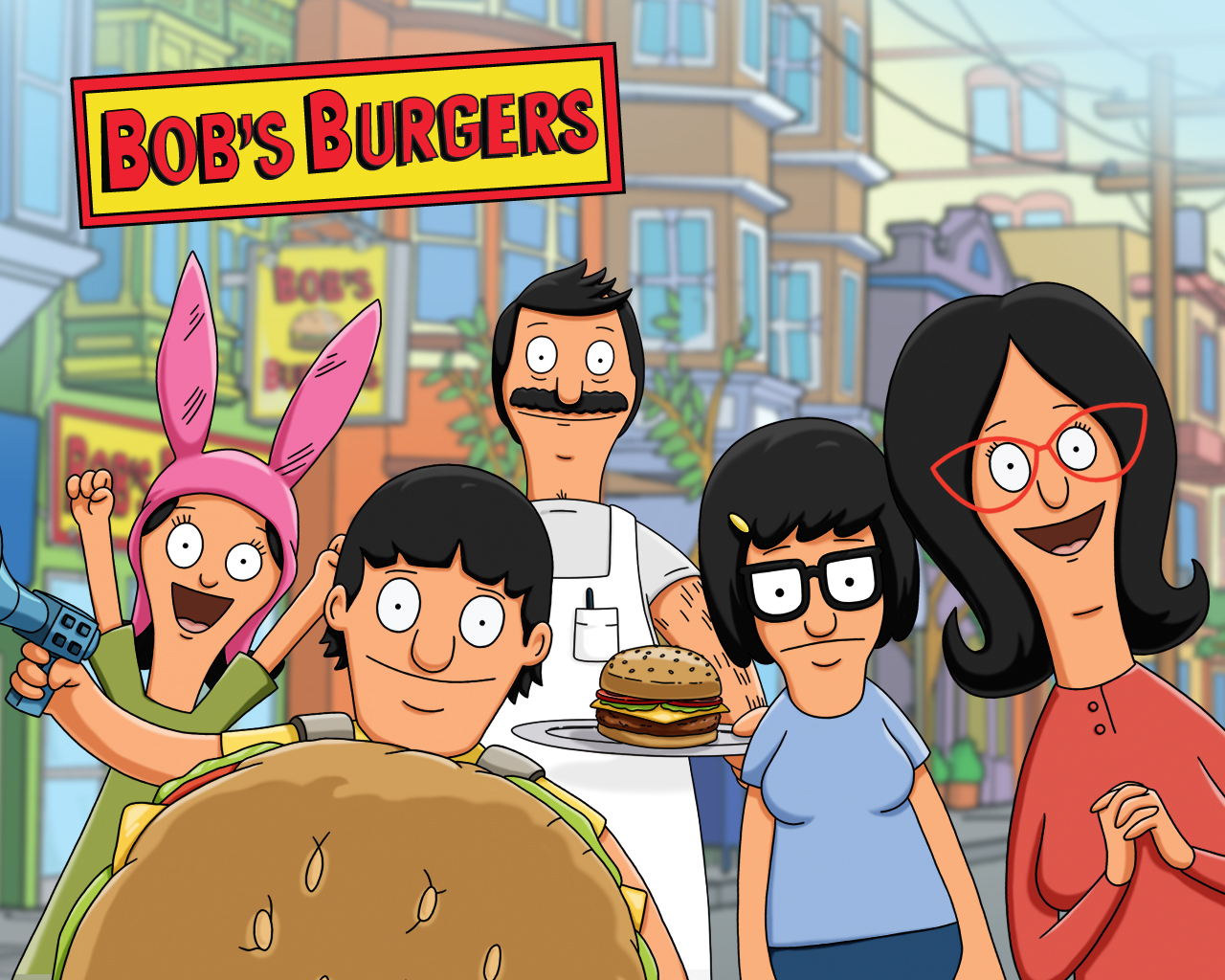Exclusive: Our Cartoon President’s Jeff Bergman

I really wish I could upload the full recording of this interview rather than just the transcription, not because it would have saved me the hassle of typing over an hour-long sound file, but because voice actor Jeff Bergman can’t talk about his characters without also becoming them. Over the course of our conservation, I got the opportunity to speak to not just Donald Trump, but Joe Biden, Jill Biden and Bugs Bunny as well. In this exclusive interview with the face and voice of Stephen Colbert’s animated satire Our Cartoon President, Bergman tells me about what it’s like to debate with yourself, explains how an east Pennsylvania accent differs from a west Pennsylvania accent, and reveals whether or not his days voicing America’s most famous cartoon critters helped prepare him to channel America’s current president.
Tim: It doesn’t often happen that two main characters of a show are being voiced by the same actor. In this sense, you’re kind of like Justin Roiland from Rick and Morty at the moment, save for the fact that, unlike in that show, Trump and Biden tend to interact only for brief moments, and have usually their own separate storylines. However, that is changing now that the series, like the world, is dealing with election. Focusing on the debate cold open, in particular, what is it like to have such an extended conversation with yourself?
Jeff: We typically record all of the Joe’s lines first. Once we’ve done that, then we sort of regroup before we do Trump, because it’s such a different mindset; they’re so different. I mean, obviously, they’re both old guys, in their 70s, but that’s probably where the similarities end. Anyway, then we go to Trump and do his lines. It would be insane to do it back and forth.
Tim: When you’re in the recording booth and you’re getting ready to do your lines, do you have certain tools, tactics or rituals that help you get into the mindset of each character?
Jeff: I do. I like to be able to step into that kind of mindset. So if we’re doing, say, a scene that has Trump at one of his rallies, I’ll pull up some of the rallies and get fired up. Just to have watched them, and being in that space, I try to capture the essence of what’s happening at those rallies, if that’s what we’re doing. If it’s something that’s more presidential, than I’ll reference something like that. As an actor, I try not to judge the character. I try very much to capture the moment in the scene, and this show really elevates the characters, so they’re somewhat kind of likable, they sort of learn something at the end — there’s kind of an art in each episode. I try to never to judge, to be too serious. We’re not trying to make any kind of political statements. We’re just trying to keep it really fun.
Tim: I think it’s interesting you say that, because you actually touched on the very last question I’d wanted to ask you. Personally, I don’t watch a lot of presidential news, because more often than not, I find it a little too infuriating to watch. And what you’re saying, about elevating the characters, I notice that as well when I watch the show. Cartoon Trump is a lot more likable than the real Trump, not in the least because — unlike the real Trump — he’s brutally honest about everything.
Jeff: I think it’s really cool that you were gonna ask that question now, because I noticed a change. Not so much in our show, but I noticed a change in the president. He’ll say things at the rallies that the writers from our show can’t even think of. He’ll say something like [as Trump] “Suburban women, will you please like me? Please!? Vote for me!” That could be a page from one of our scripts. The old adage — is life imitating art or is art imitating life? I think we’re trading this back and forth.
Tim: Well, now you’ve kind of touched on another question I was gonna ask. Trump has featured in countless shows and movies and videos over the years, but one place where he hasn’t really turned up is South Park. In that show, the creators replaced him with an established supporting character. They did this in part — I read this somewhere — because they felt that the real Trump was already such a cartoonish parody of a politician that he’d be too difficult to make fun of. Are there times when you find yourself agreeing with that statement?
Jeff: I think it’s a little different for our show, because not only do we we have the first family with Ivanka and Donald Jr. and Eric, but we also have Nancy Pelosi and Chuck Schumer and Mitch McConnell. Everything is fodder for us, including Dr. Fauci, Andrew Cuomo, Chris Cuomo. Our world doesn’t just revolve around Trump and Biden.
Tim: I assume that, when you first accepted the role of Trump, you must have studied a good deal of footage in order to get a feel for his mannerisms and speech patterns and the way he talks and such. During your journey to become Trump, did you discover anything about him that we, the casual viewers of your show, may not know?
Jeff: I have lived in New York many years. My father worked in the garment district, manufacturing ladies’ suits. I spent a good deal of the 1980s hanging out in my dad’s showroom, surrounded by people from Queens, who have very unique accents and mannerisms. Trump is also from Queens, so there is a little difference in the way that he talks, and I was familiar with that. He’s really not any different now than he was in the 80s. If anything, he’s more amped up now, but he’s still the same kind of same kind of character.
Tim: You say he’s the same as he was back then, but if you compare footage from 2016 to the kind of stuff we’re seeing today, he does behave a little differently. To me, he seems less official. I guess you kind of said that already when you mentioned his actual rallies could have been pulled straight from the show, though.
Jeff: I actually think there’s two Trumps. There’s the State of the Union-Trump, the addressing the American people-Trump, the Trump that is on script where he has a speech, and he stays on it. He’s looking at the teleprompter. And that is, you know, that’s one image that he presents. Then there’s rally-Trump, and that’s a whole different guy. His body is so animated, and he feeds off that. When they did the first debate a couple of weeks ago, and there wasn’t a crowd — there were maybe 20, 30 people, distanced, in the audience — there was no talking, no clapping. That changes who you are. Comedians, when they have a great audience, that helps with the timing, and you feed off the energy of your listeners. I think Trump really does that. Through the years, especially by being on The Apprentice, he understands television, he gets what that means, to be telegenic. He knows what people are looking for. I think he projects a lot of that confidence. And people pick up on that. And politicians, generally, let’s face it, they’re a little bit on the dry side. He’s really gone in a different direction.
Tim: Which role is more difficult to perform, Joe or Donald?
Jeff: They each present different challenges. Biden, for example, when I go back and do my research and look at him in the 1980s [as Biden] Joe Biden has a real high voice! He’s very up there, and very energetic, and this is what we’re gonna do! Come on, answer the question! [as Jeff] He was very intense, very in-your-face. Today, we see little bits of that, whenever he gets a little revved up. He’ll be at a rally and go like [as Biden] Hey, Toledo! Here we are, folks! Here’s the deal! [as Jeff] He’s the same guy, but he’s in his late 70s, so he doesn’t have quite the same voice that that he originally had. Personally, I have to watch a lot of footage, rallies, interviews, speeches and documentaries. Overall, I would say that he’s a little more difficult than Trump, because for a while, he really wasn’t a part of politics. He was out of politics. And even when he was in the White House, as a vice president, we didn’t see all that much of him. It took a little bit more time to find that headspace. But again, we do the same thing with Biden: we try to take him and make him fun, make him silly. We got him with his Ray-Ban, and talk about the fact that he loves ice cream.
Tim: It seems like it must have been quite a challenge for the writers, too, to give a powerful personality to someone whom nobody knew where he was.
Jeff: You know where he was, Tim?
Tim: Where?
Jeff: He was in his basement.
Tim: Pissing in the drainpipe.
Jeff: Right.
Tim: Growing up in New York, you were already well-acquainted with the character of Donald Trump before you accepted this role. Biden, on the other hand, you — like all of us — must have been a lot less familiar with. In studying him through all that footage you just mentioned, was there anything you learned about him that surprised you?
Jeff: I didn’t realize that he was from Scranton, Pennsylvania. I was born and raised in Pennsylvania, grew up outside of Philadelphia, and a little bit in the city of Philadelphia as well, and I also did my undergraduate work at the University of Pittsburgh. Once you’re a little west of Pittsburgh, in Ohio, that’s the Midwest, so I was surrounded by people that had a western Pennsylvania accent, and Joe Biden really kind of teeters between that eastern and western Pennsylvania accent. I started to hear a lot of things, like the way he’ll say “school.” It sounds like “scool.” [As Biden] We’re going to scool, folks! That’s a very western Pennsylvania way of saying that word. I was pleasantly surprised by that, because I get that way of speaking; I went to scool with a lot of people that talk that way. And his wife, Jill, she’s from — I think she’s from Lehigh, which is the Philadelphia area — so she’s got that [as Jill] Okay, Jow, here we gow! Cutting off the INGs, that kind of stuff. It’s such a signature sound of the tri-state area.
Tim: That’s really cool. As a foreigner, I have a bad ear for accents, but I do love them. Anyway, to take a little break from the White House as I’m sure you’d appreciate — You are an incredibly experienced voice actor whose career spans multiple decades and began in the world of Looney Tunes and Hanna-Barbera. Would you say your Bugs Bunny days inform how you do Cartoon President?
Jeff: [As Bugs] It’s true, I’m a rabbit alright. You know what, Tim? I think I should have taken that left turn at Albuquerque. [As Jeff] I’d say that’s a definite yes, because
so many of the characters that I do have in New York-quality to them. It’s funny. Having been around New Yorkers for so many years, even my own voice — I would start to talk a little bit like a New Yorker. For example, in Philly, we don’t say “water.” We say “wudder.” With New Yorkers, it’s more like “woodah.” Bugs was my first New York role, and I just felt an affinity to that sound. As Mel Blanc used to say, he kind of fashioned it after Brooklyn and the Bronx.
Tim: Moving back to the White House. One of the things I admire about Cartoon President, as well as other satires like SNL, is the fact that they don’t just make fun of Trump, but Biden, too, and pretty much everybody else as well. Now, I’m not saying that because I like Trump, but because a show that makes fun of only one person, one side, one idea, is less funny, at least in my opinion. Even so, as much as I respect your team leaving no stone unturned, a part of me does wonder: don’t you think that by making fun of Biden, by presenting him as a senile pawn of other politicians, you are hurting his chance of getting elected?
Jeff: I think it depends on how people view it. Many of them are going to have certain political leanings. Some of them might be registered Democrats or Republicans. But when I read the script and I think about things — there is a line that we had, I think it was season two, when Trump says to Pence, [as Trump] You know, Mike, you’re like the saddest room at the YMCA. [As Jeff] You can’t take that seriously. When you look at the comments that people make about the show, there are a lot of Trump supporters among them, and they love the show. And they love it, in part, because they do go after everybody, whether that’s the Speaker of the House, the Senate Majority Leader, any of the senators, Ted Cruz, the moderators — everybody. If this wasn’t an animated show, then I think the answer to your question would be, yes, it is gonna affect how people feel. That’s the trick with animation. It gets away with things.
Tim: Sticking with SNL for a moment. What would you say is the main difference between your take on Trump and Alec Baldwin’s?
Jeff: First of all, I have to say that I’m a big fan of Alec Baldwin, period. He’s way funnier than he realizes. He did an interview on Comedians in Cars with Jerry Seinfeld, and he was so funny in that segment. His Trump is so blown out, and I think it has to be. He made a choice to do that one face he always does, which I think is great. I like looking at other impersonators because they pick up on different things. But they do play him in a way that is political, that’s judging the character a little bit, even though it’s very funny. And Jim Carrey coming in as Joe Biden; I was amazed actually how much he looks like the guy.
Tim: Me too.
Jeff: They — Carrey and Baldwin — they have that kind of physicality. I don’t have that when I’m recording my voice. I have to do it without the costumes, and I think costumes definitely help you with that.
Tim: If Biden wins the election, will the show continue?
Jeff: That’s our intention, yes. It would be one cartoon president after the other. In fact, they did an actual promo: who is going to be our next cartoon president? Whether you get picked up for a new season, you don’t know until you know. But they look forward to continuing.
Tim: I’m happy you say that, because I think that, regardless of the outcome of this election, you have discovered a pretty great and sustainable format for a TV show here. It’s very much like South Park in that when you make your show about current events, you never ever run out of source material. But I don’t think this show could have been made as recently as ten years ago, mostly because I think that the US population was so much less politically informed back then. Sure, everyone knew who the president was, but how many people knew who the Speaker of the House was, let alone what personality they had?
Jeff: I think that’s one of the good things that’s come out of the past four years. People have become more active, they are interested in who their leaders are. For me, the whole thing is also just very cathartic. I look at the news like it’s my homework, but then when I’m doing the show, all the tension or frustration that I that I might have it all comes out.
Tim: And that’s such a better way to deal with things, too. When I watched the debate in preparation for this interview, I got so worked up. I’d imagine that entering the recording booth and making a show is a much more effective way of dealing with that than going on social media and writing angry comments like most people do to let off steam.
Jeff: Mel Brooks once said that the best way to deal with something that’s serious is to make fun of it, because that takes the wind out of it.

























"There are also other characters that come and go (also owned by the Warner Bros. Discovery conglomerate media company)."
Huh. Is that just referring to other characters from the show itself, or is this implying that the new season is going to have cameos from other WBD IPs